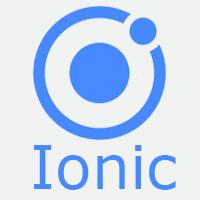OutSystems and Ionic: A Powerful Combination for Mobile App Development

In today’s fast-paced digital world, mobile apps have become an essential tool for businesses to engage with their customers and drive growth. However, developing mobile apps can be a complex and time-consuming process, requiring specialized skills and knowledge. That’s where low-code development platforms like OutSystems and Ionic come in. In this blog post, we’ll explore how OutSystems and Ionic can be combined to create powerful mobile apps quickly and efficiently.
What is OutSystems?
OutSystems is a low-code development platform that allows developers to create and deploy web and mobile applications quickly and efficiently. The platform features an intuitive visual development environment, drag-and-drop functionality, and pre-built components and templates that can be easily customized to meet specific business needs. OutSystems also provides robust integration capabilities, enabling seamless integration with existing systems and data sources.
What is Ionic?
Ionic is an open-source framework for building mobile apps using web technologies such as HTML, CSS, and JavaScript. The framework provides a set of pre-built UI components and tools that can be used to create high-performance, cross-platform mobile apps that run on iOS, Android, and the web. Ionic also provides a rich set of plugins and integrations with popular back-end services, making it easy to build fully-featured mobile apps quickly.
Why Combine OutSystems and Ionic?
By combining OutSystems and Ionic, developers can take advantage of the strengths of both platforms to create mobile apps that are both powerful and efficient. Here are some of the key benefits of using OutSystems and Ionic together:
- Speed and Efficiency: OutSystems provides a fast and intuitive visual development environment, allowing developers to quickly create and deploy mobile apps without the need for complex coding. Meanwhile, Ionic provides a set of pre-built UI components and tools that can be easily customized to meet specific design requirements, further reducing development time and effort.
- Cross-Platform Support: Ionic allows developers to create mobile apps that run on multiple platforms, including iOS, Android, and the web, using a single codebase. This eliminates the need to write separate code for each platform, saving time and effort in the development process.
- Robust Integration Capabilities: OutSystems provides robust integration capabilities, enabling seamless integration with existing systems and data sources. Meanwhile, Ionic provides a rich set of plugins and integrations with popular back-end services, making it easy to build fully-featured mobile apps quickly.
- Scalability: OutSystems and Ionic are both highly scalable platforms, allowing developers to easily add new features and functionality as business needs evolve. This makes it easy to keep mobile apps up-to-date and relevant over time.
Conclusion:
In summary, OutSystems and Ionic are both powerful platforms for mobile app development. By combining the strengths of both platforms, developers can create high-performance, cross-platform mobile apps quickly and efficiently, without the need for complex coding. Whether you’re building a new mobile app from scratch or updating an existing one, OutSystems and Ionic provide the tools and capabilities you need to succeed in today’s digital world.